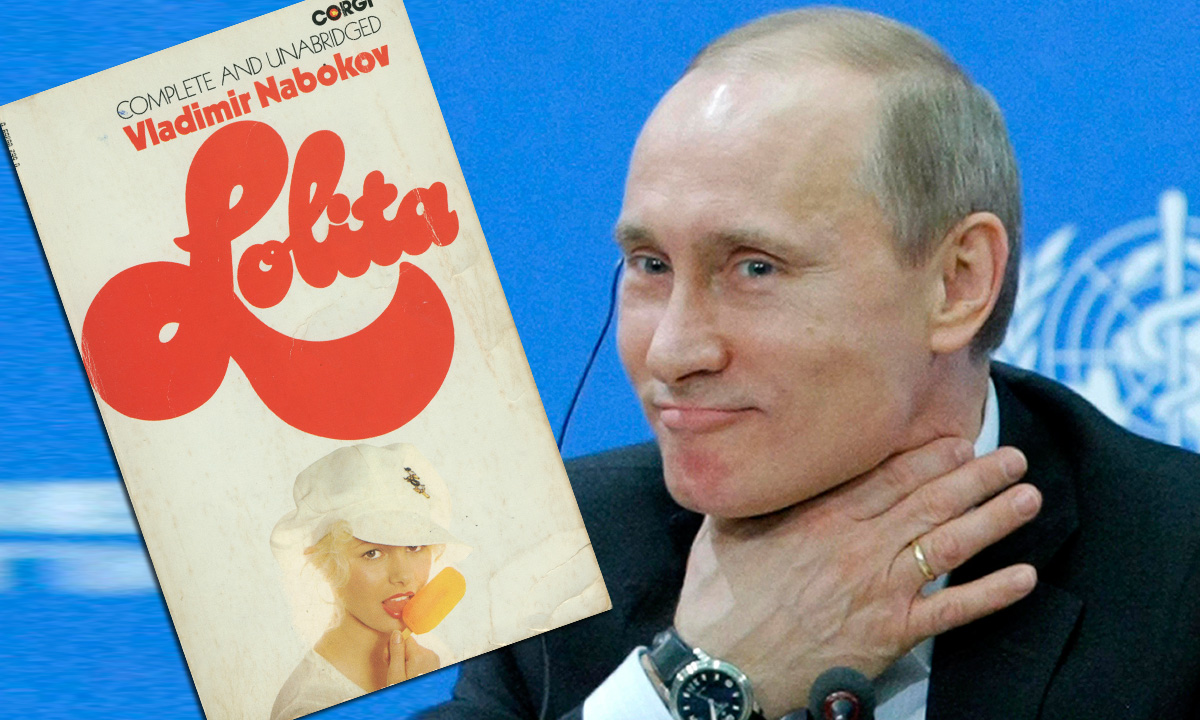In January, Melville House reported a story about the Nabokov Museum at his estate outside St. Petersburg being vandalized by a group “unable,” among other things, “to separate fact from fiction.”
It had a tone vaguely reminiscent of an Onion piece and described how a small group, going by some combination of “Orthodox Cossacks” and “free Cossacks of Saint Petersburg,” had broken in and spray-painted “pedophile” all over the museum’s walls.
That same month, the producer of a revival of a one-man stage adaptation of the 1955 novel “Lolita,” was jumped by three men who gave him two black eyes and a concussion. That’s the same play which, when it first opened, had to pass through the Soviet khudsovet. Leonid Mozgovoy, the lead, said the censorship bureau green-lighted the show and offered this piece of theater criticism: that he performed it, “rather chastely.”

Michael Idov, editor in chief of GQ Russia, calls it in his insightful New Yorker piece, “the more alarming demonstrations of Russia’s rightward track,” that “thirty-six years after his death and twenty-two years after the fall of the Soviet union… Vladimir Nabokov is, once again, controversial.”
Idov cites the more dramatic incidents as being perpetrated by small groups. We’ve seen some of these kinds of groups pop up over the years, like the extremists from the Union of Orthodox Banner Bearers. However, there’s a larger, more troubling trend. Idov explain:
Ever since the wave of urban protest that hit the country in late 2011, Vladimir Putin and his United Russia Party seem to have decided to cut their losses with the country’s finicky élites and focus on demonizing them as Western agents for the benefit of a poorer, older, more rural voter base. So far, this strategy has brought about a ban on U.S. adoptions of Russian children, harsh prison terms for the punk band Pussy Riot, new tools for policing free speech on and off the Internet, and the banishment of USAid on a fresh wave of anti-American paranoia. A simultaneous emphasis on “traditional values” has resulted in the whitewashing of Stalin’s legacy and the reëmergence of the Patriarch of the Russian Orthodox Church as a major political player…
Everything blunt, homespun, and orthodox is in. Everything multifaceted, foreign, avant-garde, or deviant is out. Lolita didn’t stand a chance.


